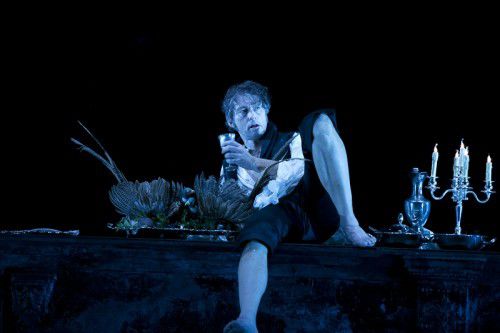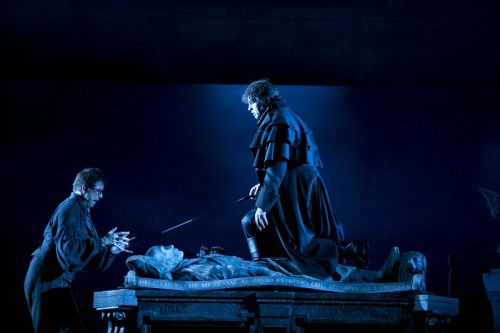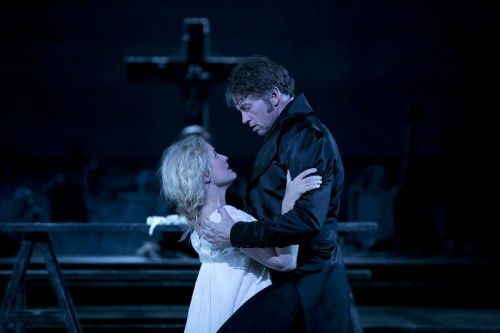AT last, Opera Australia has a production of “Don Giovanni” that it can safely keep in the repertoire until further notice.
In a masterful hands of director Sir David McVicar, every moment of this production rings true.
Gone are scenes of the libidinous Don snorting up in his relentless pursuit of kicks and in their place is a partly comic, partly dramatic tale of a swaggering, nihilistic amoralist confident of getting his own way – until the last.
Gone too is the Mr Nice Guy version of the Don, who now, in the hands of Teddy Tahu Rhodes, makes little effort to disguise the purposes of even his most amorous words. This is a totally credible philanderer, aided and abetted by his servant Leporello, played with unrepentant vigour by Shane Lowrencev. Together the pair romp through a series of encounters and sometimes horseplay with not a moment of guilt. It is notable that Mozart cast these two central characters in the lower voice register, allowing them at times to achieve almost animal quality. Superb performances.
McVicar, aided and abetted by Mozart himself, has treated the story and da Ponte’s libretto, as if it were not a tall tale about a stone statue, but an absolutely credible work from real-life. Conductor Jonathan Darlington responds sensitively to Mozart’s unusual mixture of impending tragedy (though it isn’t really a tragedy) and comedy in the music.
The scenes in which the Don moves in on the young peasant bride Zerlina, played by Taryn Fiebig make it clear that she, likes the audience, is nearly seduced by his charms.
That in turn allows a degree of laughter at the expense of the very serious Donna Anna (Elvira Fatykhova) and her fiance Don Ottavio, whose quest for revenge forms the backbone of the plot.
Probably the most significant achievement of this production comes in the part of Donna Elvira, played on the day I saw it, by Jane Ede. This, according to McVicar’s interpretation, is no whingeing milksop of an Elvira, but a red blooded woman, a worthy opponent of the Don. Though dressed in sombre colours enhanced by designer Robert Jones’s dark, movable set, she is never defeated. No wonder the audience laughed in the last scene when she suggested she might retire into a convent.
This is a good-looking production, with a great deal of attention to detail in motivating the actions of the main characters and the chorus.
If I have any reservations, it’s about the slightly cheesy emergence of several denizens of hell in the last moments of the opera – not as convincing as the rest.
But then again, just how seriously does McVicar want us to take the moral of the story and the idea that Don Giovanni gets his just deserts?
This production, in my view, the very best in OA’s current repertoire, augurs well for the productions of Mozart’s other Da Ponte operas, “The Marriage of Figaro” and “Cosi Fan Tutte,” to which McVicar has been committed in coming years.
The post Review: Swaggering nihilism makes this ‘Don’ a winner appeared first on Canberra CityNews.


